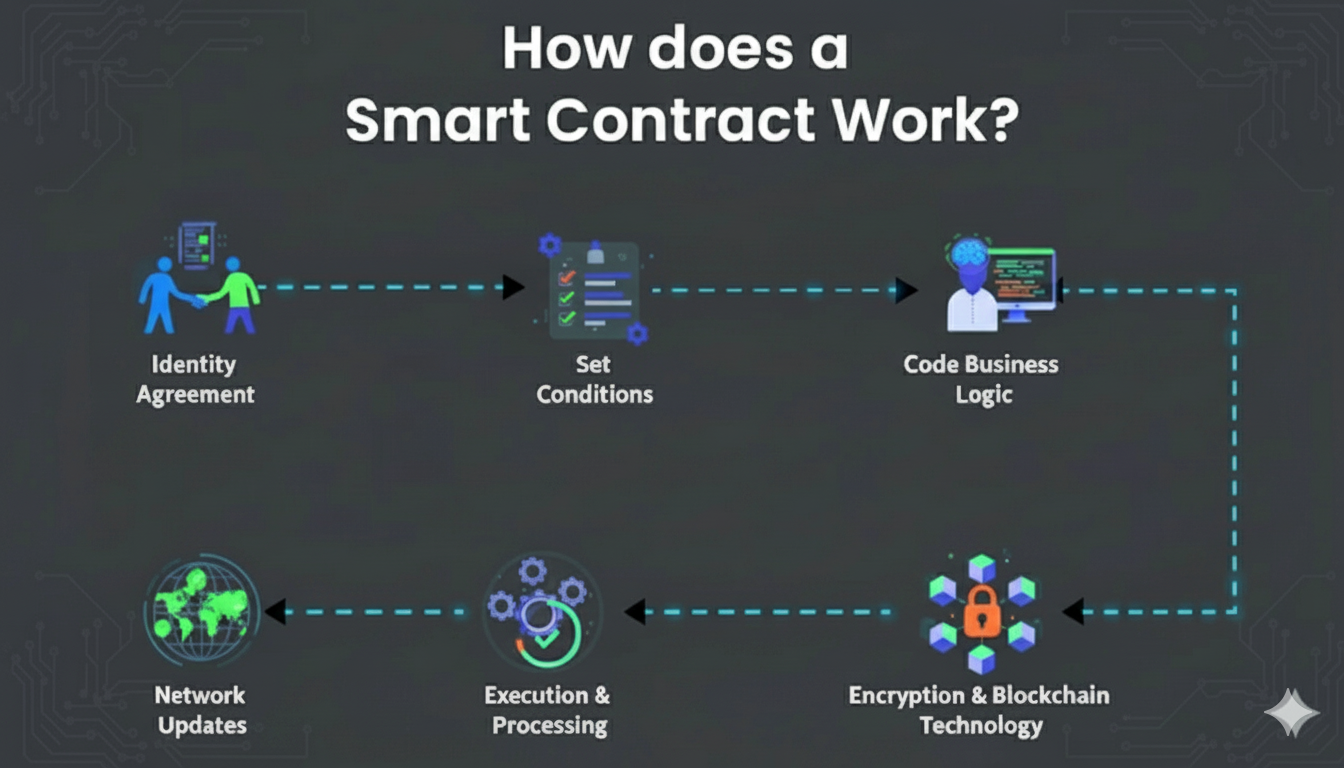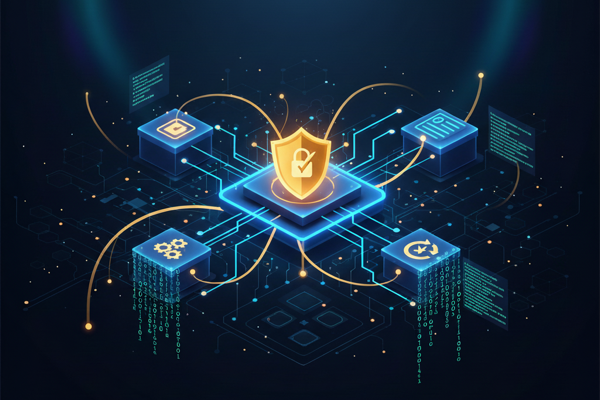Smart contracts are revolutionizing the way agreements are formed, executed, and enforced in the digital world. Built on blockchain technology, these programs automatically execute the terms of an agreement without requiring a middleman, legal oversight, or manual intervention.
Though the name includes the word “contract,” smart contracts are not legal documents. Instead, they are self-executing pieces of code that follow preset rules. Once those rules are met, the smart contract acts automatically and securely.
What Is a Smart Contract?
A smart contract is a digital program that runs on a blockchain. It’s designed to automatically execute, control, or document actions based on a specific set of conditions.
In simple words, smart contracts are:
- Automated agreements
- Written in code, not legal language
- Stored and run on a blockchain network
- Triggered when predefined conditions are met
Imagine a vending machine. You insert money, select a product, and the machine gives you that item. The entire transaction happens without a store clerk. A smart contract works similarly, but it can handle far more complex tasks.
How Do Smart Contracts Work?
Smart contracts operate using basic logic often referred to as “if/when…then” statements.
For example:
- If a buyer sends a payment, then the seller automatically receives access to the product.
- If a shipment is delivered, then funds are released to the supplier.
These rules are written into the smart contract’s code. Once the conditions are met, the program executes the agreed action. Everything is recorded on the blockchain, meaning it is transparent, traceable, and cannot be altered afterward.
Because smart contracts live on a decentralized network, no single person or company controls them. This increases trust between parties, especially when they don’t know each other.

Key Features of Smart Contracts
Smart contracts offer several advantages that make them appealing to businesses and individuals alike:
- Speed and Automation
They execute instantly once conditions are met, without delays or manual approvals. - Accuracy
By removing human error, they ensure all actions are carried out as written. - Transparency
Everyone involved can view the contract’s terms and outcomes on the blockchain. - Security
Blockchain technology secures contracts with encryption, making them tamper-resistant. - Cost Efficiency
There’s no need for middlemen such as brokers, agents, or legal advisors in routine transactions.
Where Are Smart Contracts Being Used?
Smart contracts are already being used across several industries to improve efficiency and reduce friction. Here are a few examples:
- Finance
Banks and fintech companies use smart contracts to automate loan approvals, insurance claims, and trading settlements. - Supply Chain Management
Businesses use them to track goods, verify deliveries, and automatically pay suppliers once goods are received. - Healthcare
Hospitals store patient records on blockchains, sharing them securely with insurance companies via smart contracts. - Real Estate
Smart contracts help buyers and sellers handle payments and ownership transfers without traditional agents. - Voting Systems
Some digital voting systems are using smart contracts to ensure transparency and prevent tampering.
These examples highlight the flexibility of smart contracts across both public and private sectors.
Challenges and Limitations
Despite their benefits, smart contracts are not without challenges:
- No room for error
Once deployed, fixing bugs or making changes is difficult and sometimes expensive. - Legal uncertainty
Smart contracts are not recognized as legal agreements in all jurisdictions. - Complexity
Translating real-world agreements into code requires technical and legal knowledge. - Loopholes
Poorly written code can be exploited, leading to unintended outcomes. - Physical limitations
A smart contract can trigger a payment, but it can’t physically ship a product or inspect quality.
Because of these limitations, smart contracts work best when combined with human oversight and strong governance.
Are Smart Contracts the Future?
Smart contracts are already playing a big role in today’s digital economy. As more industries shift to blockchain technology, the use of automated contracts is expected to grow.
They offer a way to make processes more efficient, secure, and trustworthy, especially in situations where speed, accuracy, and transparency matter most.
While smart contracts won’t replace legal contracts entirely, they are quickly becoming an essential part of how businesses operate online.


